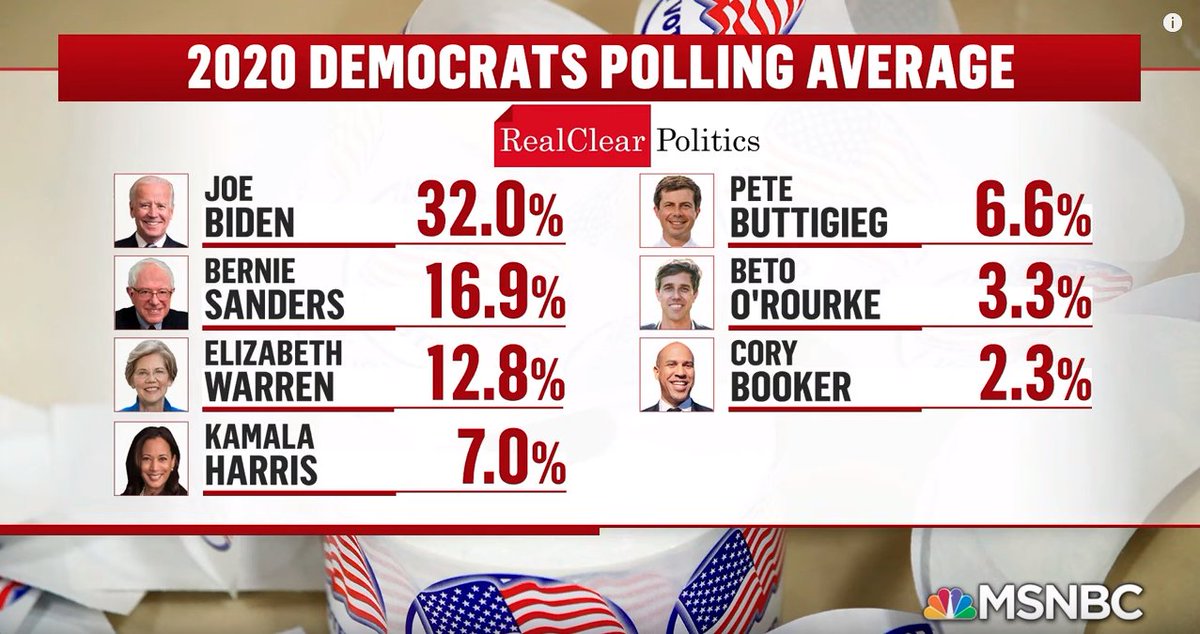Holy shit. They did it. The crazy bastards did it. @MSNBC created a graphic with photos of the 20 candidates to appear in the first debates, and they actually went so far as to remove @AndrewYang and include someone who didn't even qualify. This is shameless in how brazen it is. 

Looks like we made enough noise, #YangGang. @AndrewYang has been unerased by @MSNBC (and @marwilliamson too). #Yang2020 

Good Lord. @MSNBC just can't help themselves. In the latest example, they include his photo in a list of top 8, and manage to read every name but @AndrewYang's??
v.redd.it/eh9d4aphwh631
#YangGang #Yang2020 #HumanityFirst #FreedomDividend
v.redd.it/eh9d4aphwh631
#YangGang #Yang2020 #HumanityFirst #FreedomDividend
Isn't it kind of odd how @MSNBC went with 7 bars here instead of 8? Doesn't it look asymmetrically unappealing? Does it look to you like something is missing? That number 8 spot belongs to @AndrewYang with 1.1%.
#YangGang #Yang2020
#YangGang #Yang2020

I'm going to go ahead and leave this here in this thread, as it obviously belongs here. You can force the brass at NBC to put someone on the stage according to their rules, but you can't force them to ask him anything beyond the absolute minimum of questions. #DemDebate #YangGang 

With #LetYangSpeak now trending across the country, I feel I should expand this thread with some more examples of blatant MSNBC shenanigans in their treatment of Andrew Yang. Here's where they spoke over his appearance at the Poor People's Campaign Forum.
This egregious behavior has even been noted by @FAIRmediawatch where despite polling 8th at the time, an MSNBC graphic earlier this month excluded Andrew Yang in a photo compilation of 20 candidates. #LetYangSpeak #YangGang

https://twitter.com/FAIRmediawatch/status/1138476327022092288

Okay, this one is actually really funny. Hat's off on this one, MSNBC.
"Who else is on that stage with the former Vice President, with Bernie Sanders, you know Andrew Yang... whoops... my screen just went out!"
#LetYangSpeak #YangGang #Yang2020
"Who else is on that stage with the former Vice President, with Bernie Sanders, you know Andrew Yang... whoops... my screen just went out!"
#LetYangSpeak #YangGang #Yang2020
9/ MSNBC: "Sorry. There's just no room in the graphic to show @AndrewYang in 8th with 1.3%."
#LetYangSpeak #YangGang
#LetYangSpeak #YangGang

10/ In this latest NBC graphic, @AndrewYang's positive Twitter mention percentage is literally off the charts, likely because #LetYangSpeak was a top trending keyword nationwide all day on Friday and anything over 40% couldn't be displayed… Also, no room for a 9th anyway, right? 

• • •
Missing some Tweet in this thread? You can try to
force a refresh













